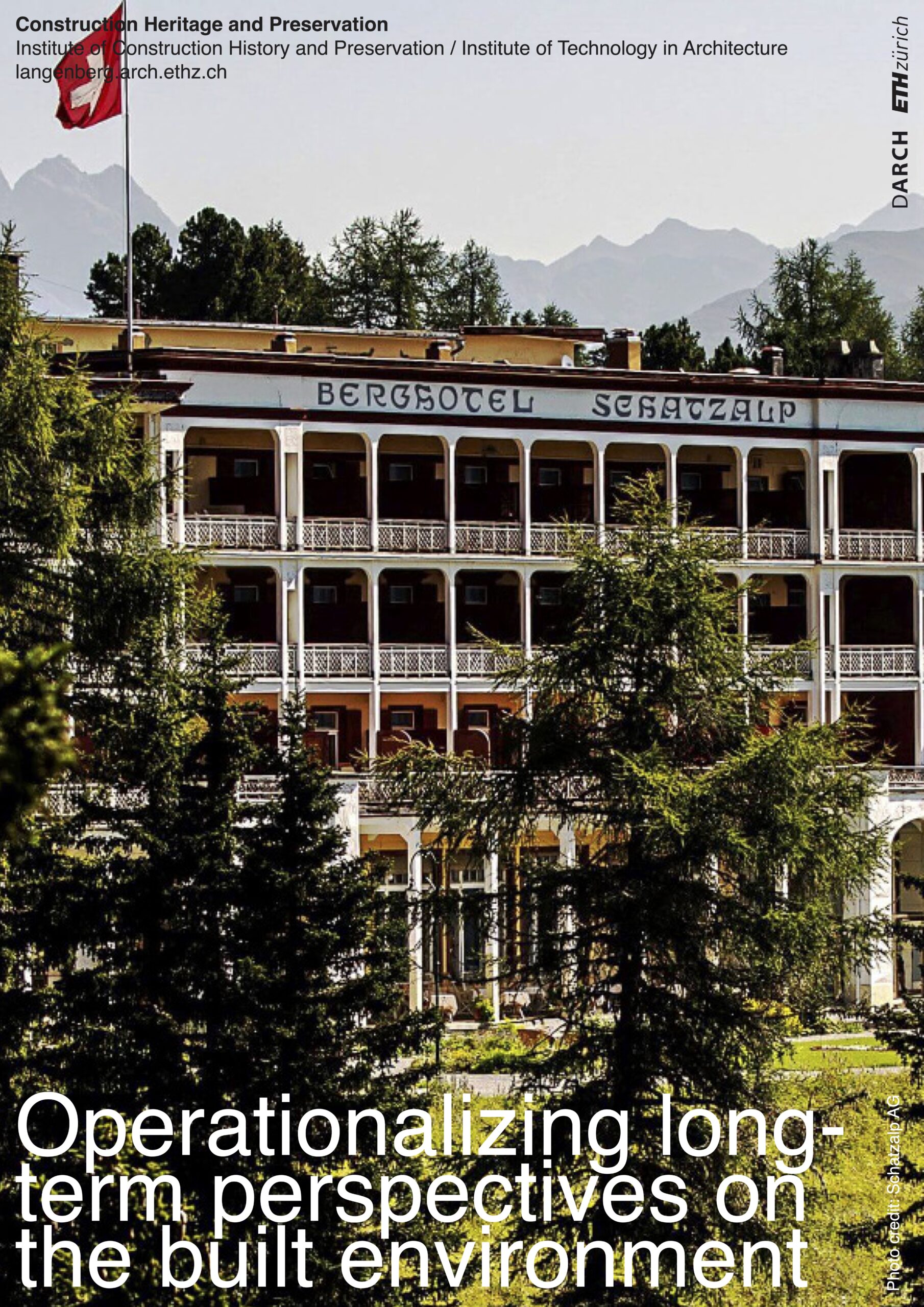
Toward transitions across architectural education, building practice, and digital mediation
Doktorand: Fabian Kastner
Zweitbetreuung: Prof. Dr. Guillaume Habert, Chair of Sustainable Construction, ETH Zurich
abgeschlossen
Die Implementierung von langfristig orientierten Praktiken in der gebauten Umwelt bleibt hinter ihren Erwartungen, da sie den Bau-Mainstream noch nicht erreicht hat. In dieser Arbeit werden Potenziale für eine erweiterte Implementierung durch Lebenszyklusdenken (LCT) untersucht. Der Umfang der lebenszyklusorientierten Forschungsrichtungen ist bereits erweitert. Er deckt nicht nur Produkte via WBLCA (Whole Building Life Cycle Assessment) ab, sondern auch Prozesse, beispielsweise in Organisationen. Obwohl LCT eine Reihe von fundierten Methoden und Tools für verschiedene Kontexte bietet, gibt es nur wenige evidenzbasierte Studien.
Dabei rückt eine Implementierungslücke zwischen Wissenschaft und Praxis besonders in den Fokus. Um diese Lücke zu schliessen, untersucht diese Arbeit, wie die Umsetzung langfristiger Perspektiven für die gebaute Umwelt gefördert werden kann. Sie wird von drei Fragen geleitet: (1) Was sind die Merkmale von langfristigen Curriculumsdynamiken hinzur Nachhaltigkeit in der Architekturlehre? (2) Wie adoptieren Bauunternehen LCT und wie kann die prozessuale Relevanz von LCT in Bauunternehmen beurteilt werden? (3) Wie können LCA-orientierte digitale Games für die gebaute Umwelt realisiert und genutzt werden?
Um diese Fragen zu beantworten, stützt sich diese Arbeit auf eine soziotechnische Stakeholder-Perspektive und konzentriert sich auf Hochschulorganisationen, grosse Bauunternehmen und einzelne Nicht-Experten. Dementsprechend wird in dieser Arbeit die Implementierung von LCT im Rahmen eines Multi-Fallstudien-Designs untersucht, indem schrittweise von übergeordneten zu detaillierteren Analysebereichen übergegangen wird: von der Entstehung und dem Verschwinden von Nachhaltigkeitswissen in der Architekturausbildung (Kapitel 3), über LCT in der Bauindustrie (Kapitel 4), bis zu digitalen WBLCA Games für die Gebäudeerhaltung (Kapitel 5).
Die Ergebnisse zeigen, wie unterschiedlich sich die Umsetzung von LCT in Bezug auf verschiedene Hebel entfaltet. Im Bereich Hochschulorganisationen ermöglicht eine Längsschnittanalyse des Architektur-Curriculums eine empirische Nuancierung generischer soziotechnischer Faktoren, die für die Verankerung nachhaltigkeitsbezogener Perspektiven entscheidend sind. Im Bereich Bauunternehmungen ist es entscheidend zwischen konzeptionellen LCT-orientierten Adoptionen und Materialisierungen im Sinne von Ressourcen- und Kohlenstoffproduktivität zu unterschieden. Eine neu eingeführte Methodik im Rahmen eines vergleichenden Fallstudiendesigns ermöglicht es, diese beiden Aspekte zu korrelieren. Ein iterativ entwickeltes WBLCA-Simulationsgame für Nicht-Experten zeigt wie Tools eingsetzt werden können um spielerisch und niederschwellig mit der Komplexität von Umweltauswirkungen über den gesamten Lebenszyklus von Gebäuden umzugehen. Dabei wird besonders auf den transdisziplinären Entwicklungsansatz, die Informationsarchitektur und Anwendungsfälle eingegangen. Schliesslich werden alle Ergebnisse durch LCT-Implementierungspfade über alle Stakeholder-Levels hinweg zusammengeführt indem der Problemansatz reflektiert wird und Bottom-up- und Top-down-Überlegungen miteinander verbunden werden. Nicht zuletzt eröffnen die einzelnen Projekte neue Forschungsrichtungen in den weiten Bereichen der Hochschulbildung, der Unternehmensverantwortung und der digitalen Vermittlung zu eröffnen. Die Arbeit zeigt, dass es notwendig ist inhärente Verbindungen zwischen diesen Bereichen herzustellen um die Implementierung langfristiger Perspektiven für die gebaute Umwelt zu verbessern.

